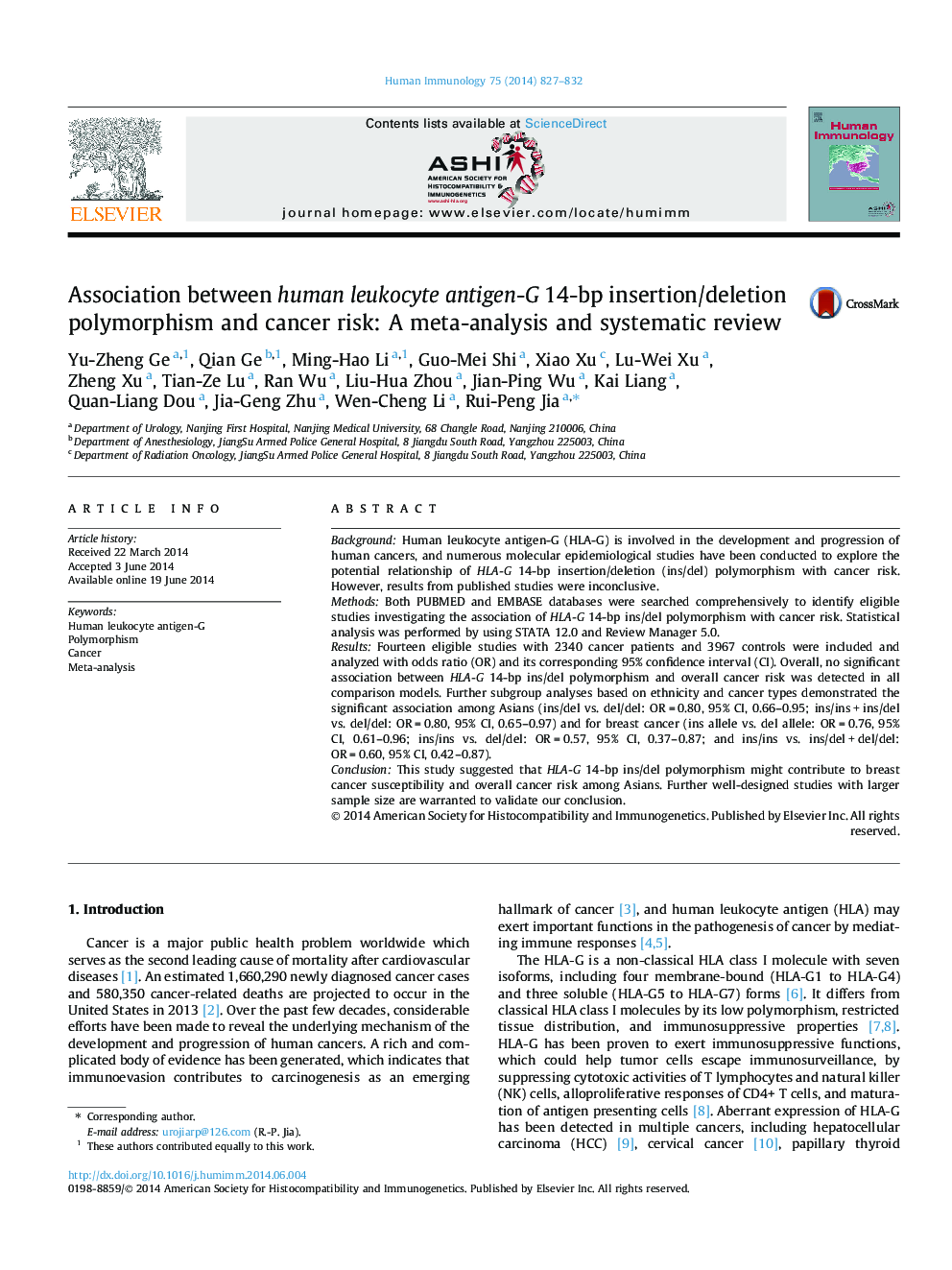| Article ID | Journal | Published Year | Pages | File Type |
|---|---|---|---|---|
| 3350323 | Human Immunology | 2014 | 6 Pages |
BackgroundHuman leukocyte antigen-G (HLA-G) is involved in the development and progression of human cancers, and numerous molecular epidemiological studies have been conducted to explore the potential relationship of HLA-G 14-bp insertion/deletion (ins/del) polymorphism with cancer risk. However, results from published studies were inconclusive.MethodsBoth PUBMED and EMBASE databases were searched comprehensively to identify eligible studies investigating the association of HLA-G 14-bp ins/del polymorphism with cancer risk. Statistical analysis was performed by using STATA 12.0 and Review Manager 5.0.ResultsFourteen eligible studies with 2340 cancer patients and 3967 controls were included and analyzed with odds ratio (OR) and its corresponding 95% confidence interval (CI). Overall, no significant association between HLA-G 14-bp ins/del polymorphism and overall cancer risk was detected in all comparison models. Further subgroup analyses based on ethnicity and cancer types demonstrated the significant association among Asians (ins/del vs. del/del: OR = 0.80, 95% CI, 0.66–0.95; ins/ins + ins/del vs. del/del: OR = 0.80, 95% CI, 0.65–0.97) and for breast cancer (ins allele vs. del allele: OR = 0.76, 95% CI, 0.61–0.96; ins/ins vs. del/del: OR = 0.57, 95% CI, 0.37–0.87; and ins/ins vs. ins/del + del/del: OR = 0.60, 95% CI, 0.42–0.87).ConclusionThis study suggested that HLA-G 14-bp ins/del polymorphism might contribute to breast cancer susceptibility and overall cancer risk among Asians. Further well-designed studies with larger sample size are warranted to validate our conclusion.
